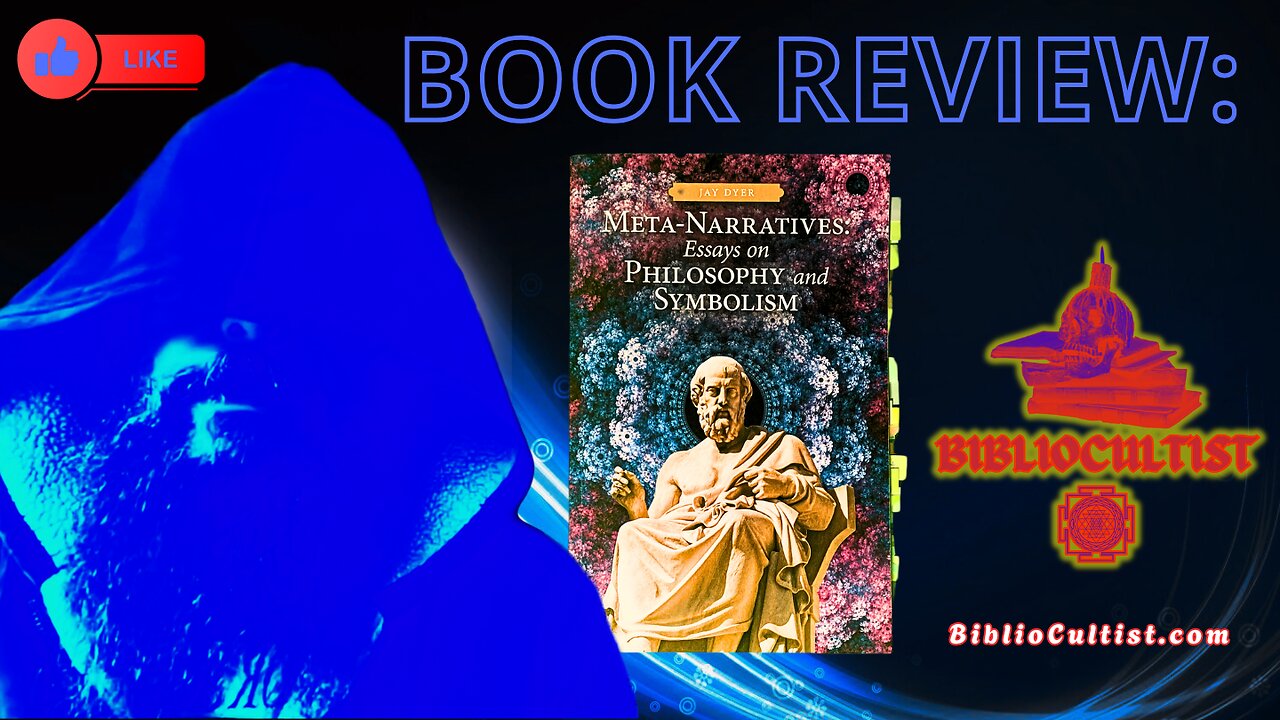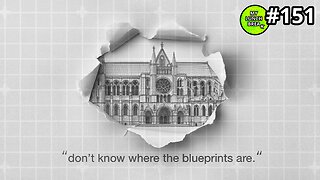Premium Only Content

Flaws of 'Natural Theology' EXPOSED
*CHECK OUT MY MERCH: https://bibliocultist.printful.me/*
In this #bookreview I go over 'Meta Narratives: Essays on Philosophy and Symbolism' by @JayDyer which offers a traditionalist Christian perspective on philosophy and symbolism. Dyer critiques modernist ideology and analyzes Aquinas' concept of divine simplicity, arguing that accepting it could paradoxically lead to atheism. The book also challenges natural theology based on observing nature, as nature itself is fallen in a traditional Christian perspective. I recommend having prior knowledge of philosophy to fully grasp Dyer's complex arguments in his book.
*all music and content copyright BiblioCultist.com*
#jaydyer #philosophy #trascendentalargument #plato #aristotle #aquinas #orthodox #catholic #christianity #booktube #books #biblio #cultist
**SHOW NOTES**
1. Jay Dyer is an American Orthodox Christian philosopher, writer, and media analyst known for his work dissecting geopolitics, metaphysics, and hidden power structures. Originally gaining attention for his critiques of conspiracy theories, intelligence networks, and occult symbolism in media, Dyer has increasingly centered his work on traditionalist Christian thought, particularly within the framework of Eastern Orthodox theology.
2. St. Thomas Aquinas (1225–1274) revolutionized Western Christian thought by systematically integrating Aristotelian philosophy into theology, shifting the medieval intellectual paradigm. Prior to Aquinas, Christian theology (following Augustinian and Platonic traditions) emphasized faith and divine revelation as primary avenues to truth. Aquinas, however, argued that reason and natural theology could complement revelation, asserting that truths about God (e.g., His existence) could be discerned through empirical observation and logical argument (e.g., the Five Ways).
3. St. Gregory Palamas (1296–1359), the foremost defender of Hesychast spirituality in Eastern Orthodoxy, fiercely opposed the rationalist Scholasticism influenced by Aquinas and Aristotelian thought. He argued that over-reliance on philosophical reason (like natural theology and evidentialism) would lead to spiritual impoverishment and even atheism, as it reduced God to a mere object of logical deduction rather than a living Person encountered through grace and mystical experience.
4. Natural theology’s claim that God is clearly reflected in nature conflicts with the traditional Orthodox view that all creation was affected by the Fall—not just humanity. If nature remained fundamentally uncorrupted (as some Scholastic and modern evidentialist approaches imply), then its structures could be perfectly decoded through reason alone, risking a divorce between Creator and creation that reduces God to a mere logical conclusion.
5. The natural inclination of human beings has historically been to perceive divine powers as personal and relational, rather than abstract or impersonal. Animism—one of the oldest and most widespread religious instincts—exemplifies this tendency, attributing agency, will, and personality to natural forces, spirits, and deities. This suggests an innate human intuition that the sacred is encountered as a "Thou" rather than an "It."
6. Sankhya philosophy, one of the oldest schools of Hindu thought, profoundly influenced early Buddhism with its dualistic framework of Purusha (consciousness) and Prakriti (matter). However, Buddhism’s later expansion in India led to a reverse influence on Sanatana Dharma, as Buddhist concepts like shunyata (emptiness) and monasticism gained dominance, nearly eclipsing Vedic traditions. By the 8th century, Adi Shankaracharya emerged to systematically refute Buddhist philosophy, reasserting the authority of the Vedas through his Advaita Vedanta—which synthesized and revitalized Hindu thought while borrowing dialectical methods from Buddhism.
7. Bheda-Abheda (भेदाभेद) is an ancient Vedantic doctrine asserting that the relationship between Brahman (Absolute Reality) and the jiva (individual soul) is one of difference and non-difference simultaneously—like the sun and its rays, or fire and sparks. Unlike Advaita's strict non-dualism (abheda) or Dvaita's pure dualism (bheda), this school (traced to pre-Shankara thinkers like Bhaskara) holds that the world and souls are both distinct and non-distinct from Brahman, avoiding absolute monism or dualism.
8. “The Westerner who seeks the wisdom of the East must not forget that he is separated from it by millennia of mental development, and that his attempt to appropriate it is a kind of artificial grafting. He lacks the necessary premises, the supporting soil of tradition, and the cultural milieu that shaped these teachings." CG Jung - "Psychological Commentary on the Bardo Thödol," 1939
-
 UPCOMING
UPCOMING
MYLUNCHBREAK CHANNEL PAGE
21 hours agoNo Blueprints - Pt 1
5.76K3 -
 LIVE
LIVE
Major League Fishing
1 day agoLIVE! MLF Toyota Series Championship!
10,045 watching -
 LIVE
LIVE
DHG
3 hours agoRE4R - BIORAND X3 ENEMY MULTIPLIER MOD - PROFESSIONAL
246 watching -
 30:14
30:14
Robbi On The Record
1 day ago $0.22 earnedYou’re Out of Alignment: Spiritually, Mentally, Physically. Here’s Why. ft Dr. Rich
1.24K1 -
 4:27:17
4:27:17
LadyDesireeMusic
4 hours ago $0.50 earnedDaily White Pill- Music & Chat
1.19K -
 1:33:25
1:33:25
Jeff Ahern
3 hours ago $2.71 earnedThe Saturday Show with Jeff Ahern
6.51K7 -
 LIVE
LIVE
Spartan
1 hour agoHalo 3 MCC Throwback Charity Tournament for Men's Mental Health | Kuhlect Mental Riqhts Spartan
39 watching -
 LIVE
LIVE
GrimmHollywood
3 hours ago🔴LIVE • GRIMM HOLLYWOOD • SGT WILKY'S WARZONE PALOOZA 2 •
82 watching -
 20:36
20:36
It’s the Final Round
2 hours ago $4.48 earnedNBA Best Bets & Player Props | Full Analysis & Predictions, FREE Today (Saturday 11/9) November 9th
11.5K1 -
 LIVE
LIVE
The Real Tombliboos - Live Streaming
14 hours ago $0.71 earned🎮 Charity Stream for Extra Life 4 Kids! ❤ Supporting Texas Children’s Hospital ! 🙌
158 watching